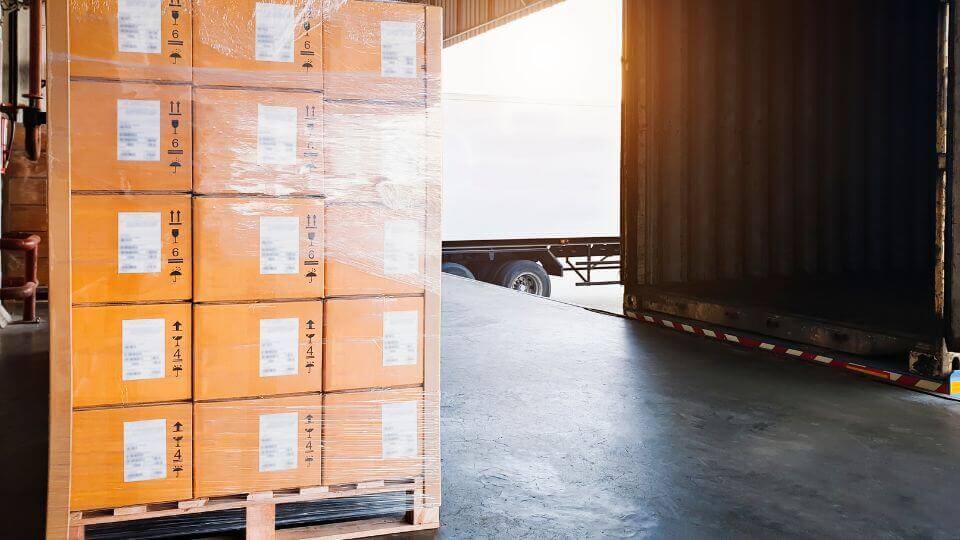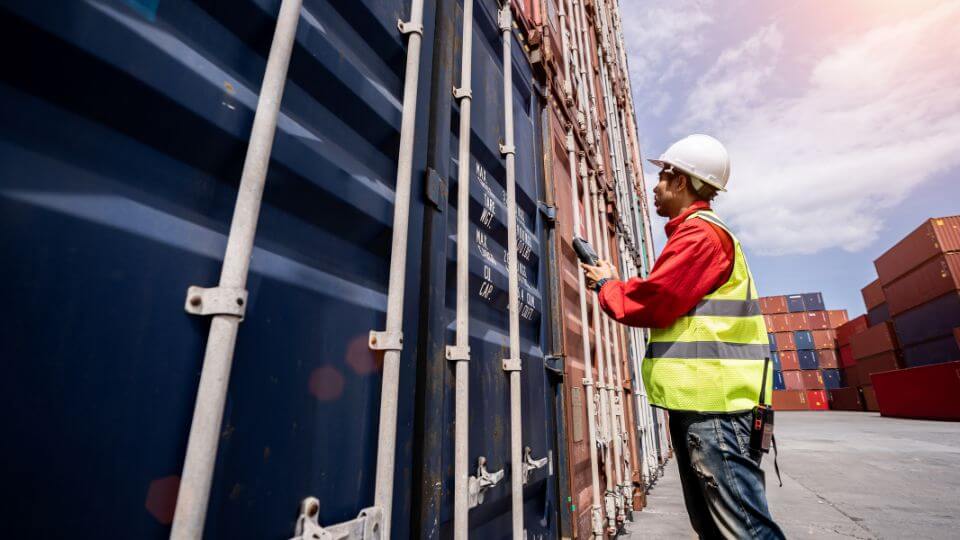Table of Contents
The shipping and logistics industry has benefited greatly from digitization in business processes. Logistics companies are already spending heavy sums of money to make the transition from manual to automated processes. Some reports suggest that spending by players in the sector is expected to reach $84.6 billion in 2027.

The effects of digitization on shipping and logistics have a long history. It has helped improve workflows, automate repetitive tasks, and enhance back-office operations. Aside from improving productivity, digitization has also helped increase the level of end-to-end visibility for logistics organizations. This visibility includes updated ETAs (estimated times of arrival), customs clearance status, and real-time location.
This article explains what digitization means and outlines the benefits of digital supply chain transformation.
Best-In-Class 3PL in the Midwest
What is Digitization in Shipping and Logistics
New technologies have been recently developed that allow users to easily store and transmit large amounts of data in real-time. The adoption of these technologies to create efficiencies in business processes is called digitization. On a fundamental level, digitalization means:
- Conversion of paper documents to digital documents
- Recording process information digitally
- Pivoting the business around digital technology
Digitization has been more pronounced for shipping and logistics companies since the breakout of the COVID-19 pandemic. The combination of lockdowns and an e-commerce boom has increased the need to manage ordering and shipping processes online. Companies require end-to-end visibility of inventory items and deliveries along the supply chain, and digital tech has made this possible for many in-house and 3PL logistics teams.
The Key Technologies Behind Digital Supply Chain Transformation
1.
Internet of Things (IoT)
The Internet of things refers to a web of sensors, networked devices, and cloud storage devices connected through the internet. IoT helps organizations to seamlessly collect data from multiple points across their warehouses, transport fleets, and shipping partners. Data can be gathered at a granular level, and companies can now use sophisticated sensors to capture a wide range of physical, locational, and transactional metrics over time.
2.
Artificial Intelligence (AI) and Robotics
AI is transforming the logistics industry through computer algorithms that can replicate human decision-making. When combined with robotics hardware, the need for human labor can be reduced, while also minimizing the risk of human error for precision-oriented tasks.
3.
Blockchain Technology
Blockchain technology has recently exploded with the rise of decentralized networks and Web 3.0 applications. Blockchains allow companies to quickly replicate their data in the digital space while providing access to networking resources that are scalable and always available online. Blockchain technology also provides a way to tokenize supply chain transactions for digital utility.
4.
Big Data Analytics
Big data refers to the combination of structured and unstructured data. With the help of innovative software solutions, companies can quickly visualize and analyze their data to troubleshoot problems or understand marketing information.
Best-In-Class 3PL in the Midwest
What are the Benefits of Digital Transformation in the Logistics Industry?
1.
Transparency
Digitization helps to give the supply chain end-to-end visibility in real time. For a business, that means having the ability to track the movement of inventory items from the point of origin to the final destination. For a customer, it means being notified about the exact ETA of their ordered items.
2.
Efficiency
The use of AI and robots in supply chains has led to the automation of warehouse management and deliveries. The result is a drastic increase in operational speed and reduced delivery times. This improvement in efficiency can then allow companies to increase throughput at a single location or scale up by expanding to another region.
3.
Cost-Savings
Automation has been a disruptive force in the industry as it reduces the dependence on a human workforce. That means reduced operating expenses for businesses. The low-risk profile of automated decision-making also contributes to increased margins.
4.
Consumer-Centricity
Big data analytics helps logistics companies track and analyze customer behavior accurately. Customer data opens up new opportunities to understand how to deliver an optimal customer experience and formulate a growth strategy for business.
5.
Environmental Sustainability
Digitization naturally results in the reduction of paperwork. That’s good for forests. It also means less paper waste.
Pitfalls of Digitization in Shipping and Logistics
As always, new technology has some downsides. Here are some pitfalls to avoid when going all out for a digital transformation in your business.
- Going digital due to the hype without understanding the market dynamics, your business processes, or the customers. This mistake can result in a failed digital transformation strategy. Do your research and carefully plan the shift before you consider making the transition.
- Failing to train new staff for the transformation. This leads to resistance to change from within the company. Always keep your staff on board your digital initiatives and learn to listen to their feedback.
- Not having a contingency plan for cyber-attacks or disasters. Since your data is digital, it is vulnerable to hackers and events that can cause damage to hardware and result in the loss of critical and even sensitive data. Prioritize cybersecurity and regularly back up your data resources.
Best-In-Class 3PL in the Midwest
The Bottom Line
The digital transformation of supply chains is already having a major impact on logistics companies of all sizes. The benefits are obvious, as digitization brings transparency, efficiency, and profitability to businesses around the world. Many companies now realize the true potential of digitization by making their business sustainable and maximizing customer satisfaction. Those yet to make the shift, will inevitably have to consider doing so down the road.
Need help in transforming your logistics operations?
At Logos Logistics, we offer integrated logistics support and custom transportation solutions for fast-growing businesses in the Midwest. In line with modern shipping and logistics systems, we provide real-time visibility, competitive pricing, and worldwide freight forwarding services to help you manage all your supply chain operations.
Bring a drastic improvement in your business by requesting a quote today!

Protected: The Ultimate Guide to Proper Battery Warehousing and Storage
There is no excerpt because this is a protected post.

What is the Difference Between FTL and LTL Shipping?
What is the Difference Between FTL and LTL Shipping? Home > Blog > What is the difference between FTL and LTL shipping? Freight shipping can

Top 10 Imports of the USA
Top 10 Imports of the United States Home > Blog > Top 10 imports of the USA The United States, a global leader in trade,
